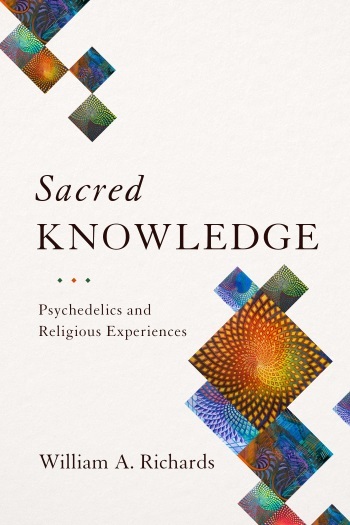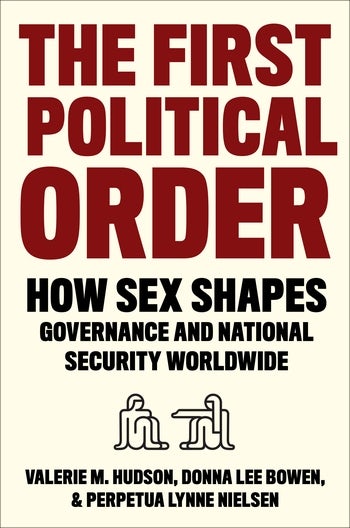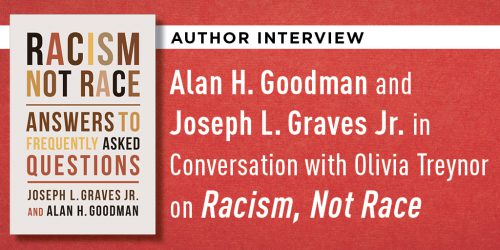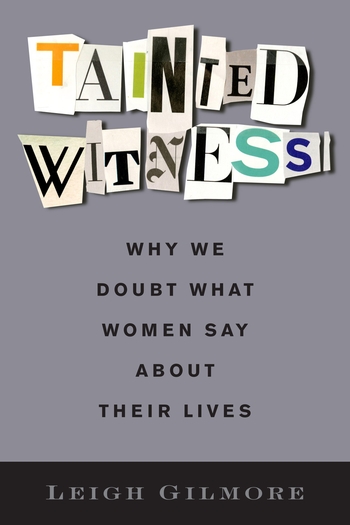Sacred Knowledge: The Mystical Experience Questionnaire
“You are convinced now, as you look back on your experience, that in it you encountered ultimate reality (i.e. that you “knew” and “saw” what was really real).”
This week, our featured book is Sacred Knowledge: Psychedelics and Religious Experiences, by William A. Richards.
Don’t forget to enter our book giveaway for a chance to win a free copy of Sacred Knowledge!
In Sacred Knowledge: Psychedelics and Religious Experiences, William A. Richards uses the potential of entheogens to occasion mystical experiences to call for their responsible medical use. In the New Yorker, Michael Pollan detailed the psychological evidence for this claim, based in part on a Mystical Experience Questionnaire co-developed by Richards, a 2006 version of which is reproduced below.
Thirty-six volunteers, none of whom had ever taken a hallucinogen, received a pill containing either psilocybin or an active placebo (methylphenidate, or Ritalin); in a subsequent session the pills were reversed. “When administered under supportive conditions,” the paper concluded, “psilocybin occasioned experiences similar to spontaneously occurring mystical experiences.” Participants ranked these experiences as among the most meaningful in their lives, comparable to the birth of a child or the death of a parent. Two-thirds of the participants rated the psilocybin session among the top five most spiritually significant experiences of their lives; a third ranked it at the top. Fourteen months later, these ratings had slipped only slightly.
Furthermore, the “completeness” of the mystical experience closely tracked the improvements reported in personal well-being, life satisfaction, and “positive behavior change” measured two months and then fourteen months after the session. (The researchers relied on both self-assessments and the assessments of co-workers, friends, and family.) The authors determined the completeness of a mystical experience using two questionnaires, including the Pahnke-Richards Mystical Experience Questionnaire, which is based in part on William James’s writing in “The Varieties of Religious Experience.” The questionnaire measures feelings of unity, sacredness, ineffability, peace and joy, as well as the impression of having transcended space and time and the “noetic sense” that the experience has disclosed some objective truth about reality. A “complete” mystical experience is one that exhibits all six characteristics.
The questionnaire, a scientific research document, asks participants to reflect on their experience.
States of Consciousness Questionnaire and Pahnke-Richards Mystical Experience Questionnaire
Instructions: Looking back on the extended session you have just experienced, please rate the degree to which at any time during that session, you experienced the following phenomena. In making each of your ratings, use the following scale:
0 – none; not at all. 1 – so slight cannot decide 2 – slight 3 – moderate 4 -strong (equivalent in degree to any previous strong experience or expectation of this description) 5 – extreme (more than ever before in my life and stronger than 4)
Items and Scoring: There are 100 items in the States of Consciousness Questionnaire. Forty-three items on this questionnaire comprise the Pahnke-Richards Mystical Experience Questionnaire which provides scale scores for each of seven domains of mystical experiences: Internal Unity (6 items); External Unity (6 items); Transcendence of Time and Space (8 items); Ineffability and Paradoxicality (5 items); Sense of Sacredness (7 items); Noetic Quality (4 items); and Deeply-Felt Positive Mood (7 items). Data on each scale are expressed as a proportion of the maximum possible score. The remaining 57 items in the questionnaire served as distracter items and were not scored. Numerals associated with each item indicate the numerical sequence of the items.
I. Internal Unity
26. Loss of your usual identity.
35. Freedom from the limitations of your personal self and feeling a unity or bond with what was felt to be greater than your personal self.
41. Experience of pure Being and pure awareness (beyond the world of sense impressions).
54. Experience of oneness in relation to an “inner world” within.
77. Experience of the fusion of your personal self into a larger whole.
83. Experience of unity with ultimate reality.
II. External Unity
14. Experience of oneness or unity with objects and/or persons perceived in your surroundings
27. With eyes open, seeing something in your surroundings more and more intensely and then feeling as though you and it become one.
47. Experience of the insight that “all is One”.
51. Loss of feelings of difference between yourself and objects or persons in your surroundings.
62. Intuitive insight into the inner nature of objects and/or persons in your surroundings.
74. Awareness of the life or living presence in all things.
III. Transcendence of Time and Space
2. Loss of your usual sense of time.
12. Feeling that you experienced eternity or infinity.
15. Loss of your usual sense of space.
29. Loss of usual awareness of where you were.
34. Sense of being “outside of” time, beyond past and future.
42. Feeling that you have been “outside of” history in a realm where time does not exist.
48. Being in a realm with no space boundaries.
65. Experience of timelessness.
IV. Ineffability and Paradoxicality
6. Sense that the experience cannot be described adequately in words.
19. Experience of a paradoxical awareness that two apparently opposite principles or situations are both true.
23. Feeling that you could not do justice to your experience by describing it in words.
59. Sense that in order to describe parts of your experience you would have to use statements that appear to be illogical, involving contradictions and paradoxes.
86. Feeling that it would be difficult to communicate your own experience to others who have not had similar experiences.
V. Sense of Sacredness
5. Experience of amazement.
8. Sense of the limitations and smallness of your everyday personality in contrast to the Infinite.
31. Sense of profound humility before the majesty of what was felt to be sacred or holy.
36. Sense of being at a spiritual height.
55. Sense of reverence.
73. Feeling that you experienced something profoundly sacred and holy.
80. Sense of awe or awesomeness.
VI. Noetic Quality
3. Feeling that the consciousness experienced during part of the session was more real than your normal awareness of everyday reality.
9. Gain of insightful knowledge experienced at an intuitive level.
22. Certainty of encounter with ultimate reality (in the sense of being able to “know” and “see” what is really real ) at some time during your session.
69. You are convinced now, as you look back on your experience, that in it you encountered ultimate reality (i.e. that you “knew” and “saw” what was really real).
VII. Deeply-Felt Positive Mood
10. Experience of overflowing energy.
18. Feelings of tenderness and gentleness.
30. Feelings of peace and tranquility.
43. Experience of ecstasy.
50. Feelings of exaltation.
60. Feelings of universal or infinite love.
87. Feelings of joy.
Source: RR Griffiths, WA Richards, U McCann, R Jesse. 2006. “Psilocybin can occasion mystical-type experiences having substantial and sustained personal meaning and spiritual significance.” Psychopharmacology (Berl). 187(3), 268-83, commentaries 284-292. Available on the Council of Spiritual Practices’ Psilocybin Research page (pdf).
1 Response
Leave a Reply
You must be logged in to post a comment.







I cannot find how to score the test. This unguided experience (which I had 40 years ago at age 27) is at the top, because I answered max points to every question except reverence (seemed irrelevant) and tenderness/ gentleness (it was intense, not gentle or tender). I just want to see what it says.